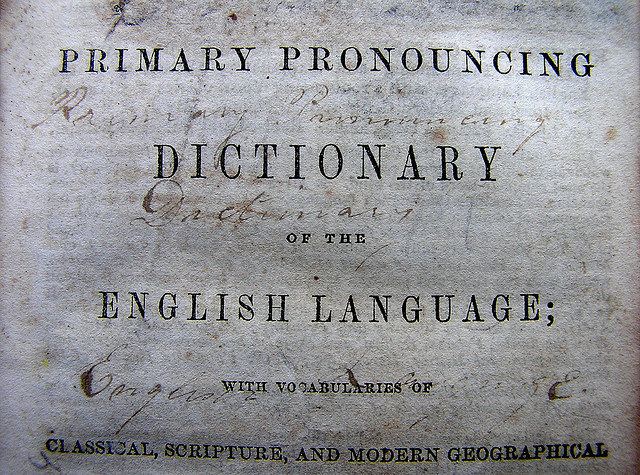Choose Your Words Carefully
Ubiquitous.
Bevy.
Nefarious.
Tinnitus.
Chicanery.
Elucidate.
Miscreant.
I adore vocabulary, and I suppose this runs from growing up in a family of English majors (and lawyers, but that’s another story.) I have been teased about my use of different words, such as “tandem” and “stoop.” (And no, I haven’t found a way to use these two words in a real-life sentence.) I don’t think these words are unusual — but they are, let’s say, outside the common “vernacular.” I love the “Word a Day” featured on Marketing Partners’ website; and I follow @katiecouric on Twitter because she often tweets a new word with definition and an example of usage.
I don’t know what proportion of the general public are vocabulary fiends, but it doesn’t matter, because there are bound to be plenty of people who don’t find this to be a very enjoyable pursuit. And that’s the key communication lesson here: we all become very comfortable with technical, clinical, medical terminology and acronyms when we use them every day in our professional lives. But step outside the workplace, and there are plenty of folks who don’t have the slightest idea what a “neologism” is… (it’s a new word or expression, fyi.)
Effective Communication Starts with Your Reader
During website and collateral material development we often find our clients using phrases and acronyms that confuse. Using the sophisticated or technical terms you hear daily is easy to do, but it is a huge mistake for a number of reasons:
- Your audience may “glaze” over, and not bother to try to comprehend your key message(s);
- There’s a risk that you’ve intimidated your potential customers, which causes them to avoid a further dialogue for fear of appearing unknowledgeable; and
- When content is difficult to comprehend, it frustrates or, even worse, alienates the reader.
Helpful Writing Tip
One rule of thumb is to develop content for the “8th grade reading level”. There’s even an easy way to quickly check the reading level of documents in MS Word 2007:
1. Click the Microsoft Office Button, and then click Word Options.
2. Click Proofing.
3. Make sure Check grammar with spelling is selected.
4. Under When correcting grammar in Word, select the Show readability statistics check box. (In case you’re interested, this blog post represents a reading level of Grade 8.9, according to this tool.)
In any event, you’ve lost your audience.
When Technical is Necessary
There are plenty of instances when technical terminology is unavoidable. In these cases, it is important to remember to educate by explaining your terms in clear, easy-to-understand language. We often recommend using a glossary for websites and in support material for this reason. (Doesn’t hurt for SEO, either!)
Another note of caution: defining technical content and translating acronyms and unusual terms should not be confused with “dumbing down” your message. Speaking down to your audience is an attitude that comes through, and is a big red flag for communications professionals, not to mention your potential (or existing) customer(s).
Resources
While searching for a quick and easy reference for developing concise copy, I came across this short list of “Hemingway Tips” and this resource listing the various methods for gauging reading levels. If you want to check out what you’ve done in the past, you can try out the new Google Reading Level feature.
For those few readers who also happen to be “word-ies” like me (I guess this includes you, English major family members…) here are the definitions of the vocabulary words listed previously (in order of appearance) in this post (just in case you didn’t know them already):
Ubiquitous: present everywhere, or appearing in several places simultaneously
Bevy: group
Nefarious: wicked
Tinnitus: a ringing in the ears
Chicanery: trickery, fraud, deception
Elucidate: make clear, clarify
Miscreant: one who behaves criminally
Tandem: 1. bicycle or tricycle with two or more seats; 2. group of two or machines, with one behind or following another
Stoop: a porch or small veranda or set of steps in front of a house
Vernacular: the language or dialect of a particular country



